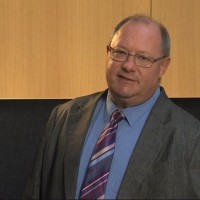Blog

Guest blog: We need assessments to underpin – not just test – learning
16 Aug 2022
 The University of the West of Scotland's Professor Jonathan Powles writes on the need for a new approach for assessment
The University of the West of Scotland's Professor Jonathan Powles writes on the need for a new approach for assessment
The traditional exam is an old technology based on an out-of-date concept of how people learn. We have better ways to test students’ capacity to succeed in today’s world.
The pandemic exposed challenges in the way we assess knowledge. Many UK examination approaches still required students to turn up to an exam hall – and, during the pandemic, they simply couldn’t. Do traditional exams give us an accurate picture of students’ learning and understanding? I would argue they don’t.
It’s time to change the assessment landscape.
Different disciplines shouldn’t be expected to demonstrate learning via traditional exams. Would you want to have lifesaving CPR administered by a paramedic who has simply written an exam paper on the technique?
We also focus too much on the technology of ‘paper’. We even talk about certificates and exam papers, but it’s time to explore technology-driven assessment models matched to the real-world needs of our students. It can open up a range of possibilities, such as integrating videos into questions, or to include simulations of practical situations.
I welcome the global trend to integrating digital technology into assessments – while recognising this raises fresh considerations. Could digitisation place barriers in the way of students less familiar or with no access to technology? Are there ethical issues with being assessed via a webcam, particularly in healthcare settings?
On the flip side, a blend of assessment methods can be more inclusive. There can be accessibility or situational barriers to people attending traditional exam hall assessments. Being unwell or those unexpected life events we can’t control - is it fair to expect someone’s understanding of an academic term to be demonstrated in one sitting?
In today’s era of customer service live chat, parcel tracking and social media exchanges with friends around the world, today’s students increasingly prize real-time feedback. Therefore, our focus should be on ongoing, regular assessments, feedback and reflection throughout a term.
Assessments should set students up for the future; showing evidence of real-world competencies. Every test, quiz and assessment should be meaningful – counting towards their future, not just a certificate.
At UWS, we’ve phased out closed-book exams, except where required by professional bodies, and are instead focusing on a modern “e-portfolio” approach, in which students collect evidence of their professional accomplishments to be used as part of their assessment.
This is a much more comprehensive and representative learning record, which can be adapted to meet the needs of employers - genuinely reflecting students’ abilities and capturing who they are. Investing in such an approach, I believe, is the key to ensuring personalised, inclusive and impactful assessment reform.
Professor Jonathan Powles is Vice Principal for Teaching, Learning and Students at the University of the West of Scotland. He can be found on Twitter @JonPowles
A version of the piece originally appeared in The Times on Friday 15 July 2022.